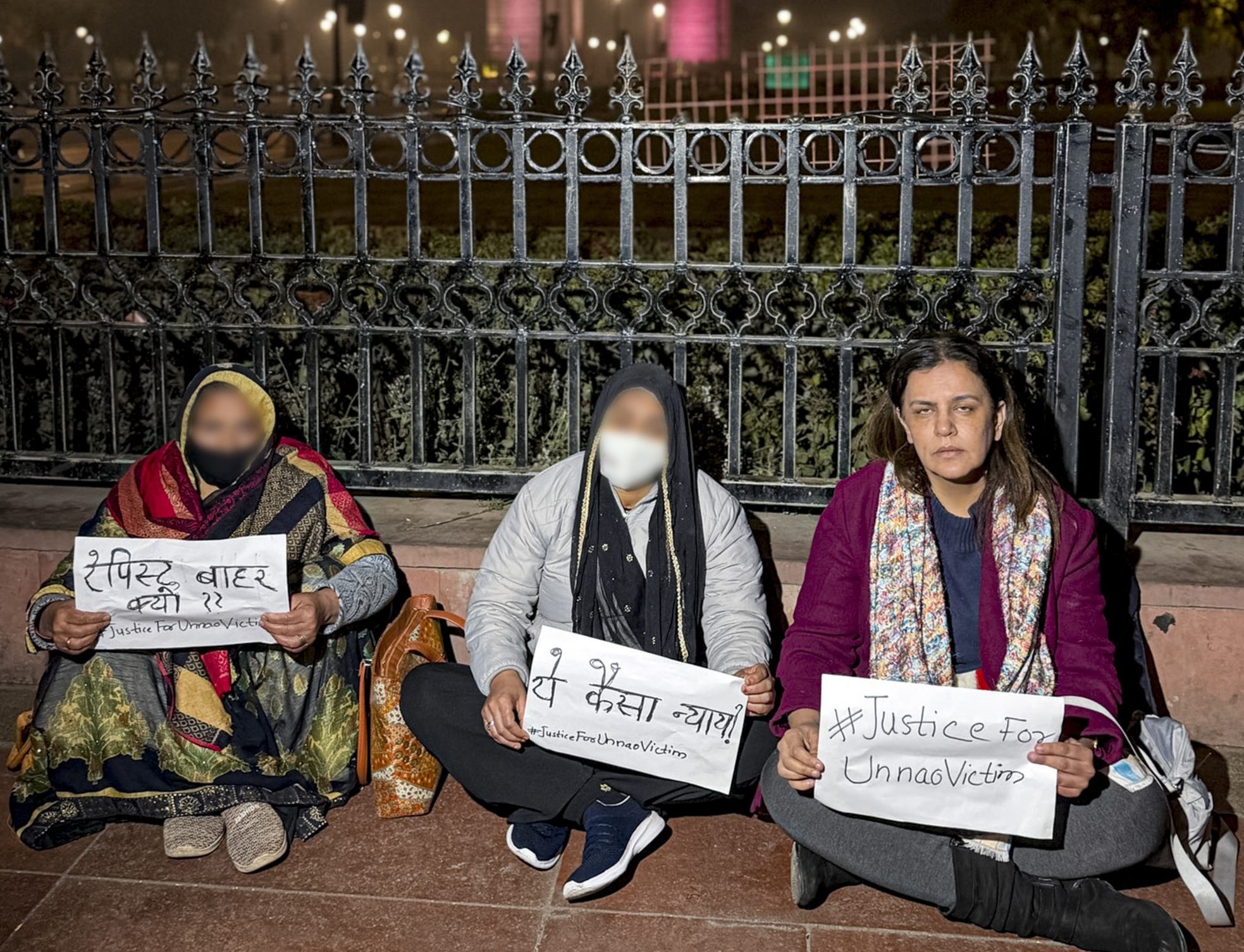The Madhya Pradesh High Court recently said that the sexual relationship between a husband and wife is not just restricted to procreation. The court also observed that it cannot define any act beyond “natural” sex between the couple as “unnatural.”
The High Court made these observations quashing the FIR booked on MLA Umang Shingar by his wife while holding that a husband cannot be prosecuted under Section 377 of the Indian Penal Code (Unnatural Offence) given Section 375 IPC (Rape), which exempts marital sex and covers all possible penile penetration.
Importantly, the Court also underscored that the relationship between the husband and wife cannot be confined to their sexual relationship only for procreation, and therefore, if anything is done between them, apart from the deemed natural sexual intercourse, the same cannot be termed as ‘unnatural’, the report says.
What is the case about?
It was during the end of the previous year that MLA Umang Singhar was booked for rape by his wife. The complainant said that she was exploited under the pretext of marriage and the MLA was charged under Sections 294, 323, 376(2)(n), 377, 498-A and 506 of the Indian Penal Code.
On September 22, the Madhya Pradesh High Court ruled out the FIR filed against MLA Umang Singhar pointing out that sexual relation is not restricted to procreation, holding that a husband cannot be prosecuted under Section 377 IPC (Unnatural Offence) in view of Section 375 IPC (Rape) which exempts marital sex and covers all possible penile penetration.
The Madhya Pradesh High Court recently said that the sexual relationship between a husband and wife is not just restricted to procreation.
According to the reports, on the wife’s allegation that her husband was indulging in unnatural sex, the court mentioned that normally, sexual relationship between the husband and wife is the key to a happy connubial life. That cannot be restricted to the extent of sheer procreation. Hence, if anything raises their longing towards each other giving them pleasure and ascends their pleasure, then it is nothing uncustomary and it can also not be considered to be unnatural that too when Section 375 IPC includes all possible parts of penetration of penis by a husband to his wife.
Explaining further, Justice Dwivedi stated that: ‘If sexual intercourse for procreation via penile—vaginal penetrative intercourse is considered to be natural sex and sexual relations of husband and wife is confined to that extent then in case if any husband or wife is not capable of procreation, then seemingly their relationship would become useless, but it does not happen‘, the report says.
Why is consent to sex different in marital relationships and non-marital relationships?
Looking at the subject of consent in marital relationship between spouses, the court analysed that according to the current or existing legal system, consent is not necessary for sexual actions. Therefore the court concluded that no unnatural offense could be established in sexual relationships between the spouses.
But here it emphasises the nature of consent which has a very distinct meaning in non-marital relationships. This distinct nature of consent in both relationship makes it tougher for women to report and seek justice for marital rape in India, as under the legal framework it has not been criminalised yet.
Is this a triumph for the ongoing anti-natal movements in India?
Urban India has been witnessing many rising anti-natal or childfree movements in and around the society. There are many anti-natal movements that happens in and around our nation as well. Child-free by choice has been a gradually rising movement redefining families in urban India.
In the year 2019, a group of anti-natalists gathered in Bengaluru to emphasise the need for ‘child-free’ living.
There have been reports discussing anti natalism and anti-natalists who are working collectively towards this movement who were asking people to stop reproducing, claiming that the world is no longer fit for human existence. In the year 2019, a group of anti-natalists gathered in Bengaluru to emphasise the need for ‘child-free’ living. This meet was a first-of-its-kind that was witnessed by Bengaluru.
While tokophobia (fear of pregnancy) is still an underrated topic of discussion, there are many reasons people choose to not have a child. Many find it difficult to put the topic in the limelight but with the court’s ruling is in favour of these movements while there are sections of the society that believes marriage as a means for procreation and reinforce sexual intercourses are only meant for procreation and anything other than that is an ‘unnatural’ deed.
In a society, there might be people who voluntarily decided to not have children, people who do not currently have children, but want them in the future, people who had hoped to have children but were unable to conceive, people who have faced infertility issues, some who have not met a compatible partner and so on. Our society is a mixture different people who have different needs. And reinforcing the idea of sexual relations as a means of procreation alone can affect the major section of the society and the social circumstances. Nevertheless, according to the reports, the ‘child free’ movements are gaining fresh momentum in the social media and among many netizens.
Society and ‘sex within the charmed circle‘
Referring to Gayle Rubin’s ‘charmed circle’, which says that people prioritise and centre certain behaviours which they consider as good and natural and place other behaviours that are considered as “bad and unnatural” to the margins of the ‘charmed circle‘.
Looking at mainstream feminist discourse or the rolequeer theory, sex within the charmed circle (also referred as the charmed sex) refers to attitudes, beliefs, and practices related to sex that are considered “normal and good” in the dominant heteronormative culture which is the overarching culture in society. Different social groups with different social values apply those values to their sexual behaviours as well.
The dominant culture of society consists of social groups who place sexual behaviours that fall under heterosexual, monogamous, coupled etc as good and natural; and queer, polyamorous etc as bad and unnatural. Today, we live in a society that is constantly fighting for equality and equity among people in all terms including sexual rights, cohabitation rights irrespective of the gender which is the dominant in culture now. The laws keep changing with the changing times and societal stereotypes.
Applicability of Sction 377 of the IPC
In today’s times section 377 IPC applies to sex with minors, non-consensual sexual acts, and bestiality, except for gay sex. Now, unnatural sexual assault with a woman has been classified as rape, and sexual assault with a minor, whether male or female, is subject to the POCSO legislation.
Under section 377 of the IPC, a wife can file a prosecution against her husband for unnatural sexual offences. Furthermore the husband can be penalised under this clause even if the victim agreed or gave in to the act which means that the consent of the victim’s permission is irrelevant here.
The court must be cautious dealing with allegations as the legislation is both beneficial and vulnerable to abuse
The court must be cautious dealing with allegations as the legislation is both beneficial and vulnerable to abuse. We live in a country where rape is a crime but marital rape is not. The complexities underlined there is never ending topic to be addressed. Since, under the law, here, consent is not a criterion to determine whether it should be used, there is enough room for abuse and sufferings. Following Madhya Pradesh court’s ruling that says sex should not be restricted to just procreation, many follow-up debates can arise. However, people should be more aware of all the laws and rules to live in the society adhering to the changes both in times and laws.









